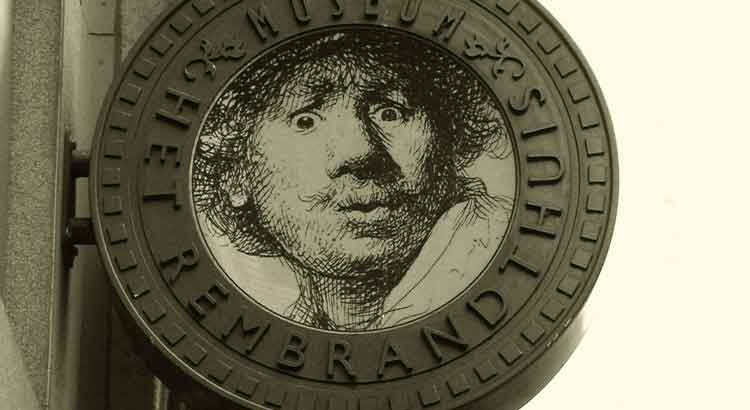I am impressed by the individual’s interest—and I do not know if I should say attrition—in that which is totally outside his field of action. The guy reads the newspaper and wants to tell the world his opinions. He argues with his neighbor, rebels at disagreement, clashes with whoever contests him. Then he buys more newspapers, tries to become more informed so that, on the next occasion, he can annihilate his opponents in a debate that will never lead anywhere. He spends time and nerves on the useless. For every page of the newspaper, he reads one less page of Shakespeare. He does not understand his insignificance, he ignores the harmful character of his posture. But he goes on, of course, in the name of his greatest virtue: vanity.
Category: Notes
Rembrandt’s House
I follow through one of Valéry’s essays on Leonardo da Vinci and suddenly have to close it, lost in memories. I read “painting” and the word evokes in my mind the day I fell, by chance, by tremendous and unprecedented luck, into Rembrandt’s House. I entered the museum and did not even know who Rembrandt was, I was incapable of a single biographical note. And then, at the very first painting, I was violently attacked: I stood in front of the work, perplexed. I had never been struck by a painting before, and that day I was able to measure my lack of culture. I remember that, like an idiot, I kept approaching and moving away from the paintings, first noticing the effects when observed from a distance, and then the details, the individual brushstrokes, with features that reminded of the Indians in their first contact with the Europeans. I disconnected from what was going on around me and was impressed by the depth, the creativity in the arrangement of the planes, and the emotional charge of the canvases. When I was startled, the museum was about to close and the clock was telling me that I had spent four hours in the house, which, if crossed at a leisurely pace, takes no more than ten minutes of the visitor’s time. “He had never been in a museum”—the employees must have been commenting among themselves, while they were getting rid of me. But that day, an illiterate left a museum convinced that he had been, for four hours, in the presence of the greatest painter of all time. And he never forgot it.
No Society Can Endure and Thrive Without a Strong Cultural Base
No society can endure and prosper without a strong cultural base. A young country is naturally unstable. And a country that breaks with its origins, or stonewalls them, trying to erase its past, is heading toward collapse. Cultural destruction necessarily implies mass moral degradation. There is nothing more devastating to a society than an attempt to “rewrite the history”.
Modern Man Thinks He Is Important
Modern man has this distinction: he thinks he is important. And he runs to a psychologist when he unconsciously suspects that he is not. The depression he suffers at forty begins in childhood and extends into youth, when he grows up bombarded with lies, feeding in his mind a false vision of himself. He smiles because life offers him wonderful prospects; “future” is always an auspicious word; he starts to believe. And with the years, he has to face severe frustrations. Is it life’s fault? Obviously not: life has nothing to do with the animal’s presumption! Life is the victim of an epidemic falsification, a frightening incomprehension, and an unprecedented demeaning. A young person is trained, like a dog, to give certain answers to “what will he do with his life,” socially admirable answers, and learns to see the world in a mediocre light, valuing that which has no value. He begins by making mistakes about himself and ends up making mistakes about life.



